The digital transformation and the increased use of intermediary services through online social networks and online platforms that allow consumers to enter into distance contracts with businesses have brought new risks and challenges for individual recipients of a service, businesses and society as a whole. The online revolution has made it necessary for the European Union to respond with a kind of code for providing services online.
As of 17 February 2024, the Digital Services Act – Regulation (EU) 2022/2065 of the European Parliament and of the Council of October 19, 2022 on the single market for digital services and amending Directive 2000/31 EC (DSA) – took effect. It complements the Regulation of the European Parliament and of the Council on contestable and fair markets in the digital sector, the so-called Digital Mark Act (DSA).
Who does the DSA apply to?
The Digital Services Act applies to intermediary services offered to service recipients established or located in the EU, regardless of where the service provider is based. The Digital Services Act’s material focus is on businesses providing online services of an intermediary nature. It is primarily concerned with:
- intermediary services offering network infrastructure;
- caching services, i.e., services involving the transmission over a telecommunications network of information provided by the recipient of the service, involving the automatic, intermediate and short-term storage of this information, done solely to facilitate the subsequent transmission of information at the request of other recipients;
- Internet platforms offering a hosting service that stores and disseminates information to the public at the request of the service recipient (with certain exceptions);
- Internet search engines;
- very large Internet platforms that pose a particular risk of disseminating illegal content and causing social harm
Who does the DMA apply to?
The Digital Markets Act will only apply to key tech and adtech players, i.e. companies providing “core platform services” with a market capitalization of at least €75 billion or an annual turnover of €7.5 billion. By contrast, the “access gatekeeper” category applies to administrators of social media platforms or search engines that have at least 45 million end users per month in the European Union and 10,000 business users per year.
What steps to take?
Intermediary online service providers must take a number of steps to bring their organization’s operations into compliance with DSA and DMA requirements. Adequate analysis and subsequent implementation of DSA and DMA (if there is an appropriate rationale for doing so) is critical. Failure to comply with DSA requirements can result in financial liability: up to 6% of a given intermediate service provider’s annual worldwide turnover in the previous financial year.
SKLAW provides comprehensive services for the implementation of the Digital Services Act by conducting an audit to verify the necessity of implementing the regulation in the organization, and then adjusting the regulations for the provision of electronic services and preparing and implementing internal procedures.
